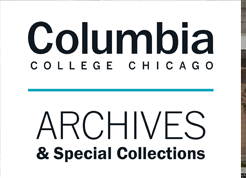Document Type
Article
Loading...
Publication Date
Spring 2009
Keywords
United Farm Workers, Students, Political activity, Champaign Urbana Coalition Against Apartheid, Coalition for Illinois' Divestment from South Africa, Chicago Area Committee in Solidarity with Southern Africa, Illinois Labor Network Against Apartheid, American Committee on Africa, African National Congress, Mozambique Support Network, University of Illinois, Illinois Public Action Council, UNICEF, Pan Africanist Congress, Nelson Mandela, Cosatu, Nicaraugua, Cook County Hospital (Chicago)
Disciplines
Political Science | Political Theory | Race and Ethnicity | Race, Ethnicity and Post-Colonial Studies | Work, Economy and Organizations
Abstract
Length: 88 minutes
Oral history interview of Rachel Rubin by Brandi Schaeffer
Dr. Rubin begins by recalling her childhood in Chicago, raised with her twin brother and younger sister, in an ethnically diverse north side neighborhood. She explains how she became involved in activism work at the University of Illinois as part of a Campus program that helped her learn more about activism, discussing topics like Marxism and socialism. She mentions her involvement in the campus protests demanding the university divest from the South Africa. She describes joining CIDSA (Committee for Illinois Divestment in South Africa), later known as CCISSA (Chicago Area Committee in Solidarity with South Africa), where she spoke publicly in many places including synagogues about Apartheid and how Israel was helping South Africa with nuclear capabilities. She recalls her time as co-chair of CIDSA with Basil Clooney and as president of her union house staff residents at Cook County Hospital. She mentions she became a representative for CCISSA to the Illinois Labor Network Against Apartheid. She lists some organizations that her group worked closely with like the Washington Office on Africa, the American Committee on Africa, and others. She explains how her anti-Apartheid work led her to working in Mozambique, where she was eventually hired by the Ministry of Health to serve as a physician. She recalls her reactions to a number of historical events, including the Soweto Uprising and Mandela’s release from prison. She reflects on her involvement in the anti-Apartheid movement and its influence on her life since.
Recommended Citation
Schaeffer, Brandi. "Interview with Rachel Rubin" (Spring 2009). Oral Histories, Chicago Anti-Apartheid Collection, College Archives & Special Collections, Columbia College Chicago. http://digitalcommons.colum.edu/cadc_caam_oralhistories/26
Creative Commons License

This work is licensed under a Creative Commons Attribution-NonCommercial-No Derivative Works 4.0 International License.
Included in
Political Theory Commons, Race and Ethnicity Commons, Race, Ethnicity and Post-Colonial Studies Commons, Work, Economy and Organizations Commons



Biography and Comments
Rachel Rubin was born in 1958 in the Chicago area. She attended Evanston High School before enrolling at the University of Illinois Urbana-Champaign, where she earned a bachelor’s degree in mathematics. She later earned an MD at Rush Medical College and completed her residency at Cook County Hospital and a Masters degree in Public Health from the University of Illinois Chicago, specializing in Internal Medicine and Occupational Medicine. She has served at numerous institutions and is currently co-lead and senior medical officer for Cook County Department of Public Health.
The interviewer conducted this oral history as part of his/her coursework for the Spring 2009 class, Oral History: The Art of the Interview. This interview supports the scope and content of the Chicago Anti-Apartheid Movement Collection at the College Archives & Special Collections department of Columbia College Chicago. Contact archives@colum.edu for more information and to view the collection.